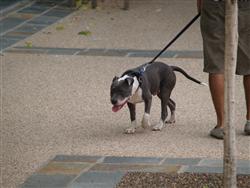 Want to Work in the Pet Industry?
Want to Work in the Pet Industry?
Learn about animal health care, and develop business and management skills, that are valued for a career working with pets or providing support services within the pet industry.
This course can be an excellent starting point for:
- Pet Shop staff or proprietors
- Animal Breeders or Service Providers
- Veterinary Assistants
- Animal Shelter Staff
- Allied professions in Farming, Wildlife, etc
The course is also well suited to anyone who already works with animals who is seeking to further their skills and career prospects